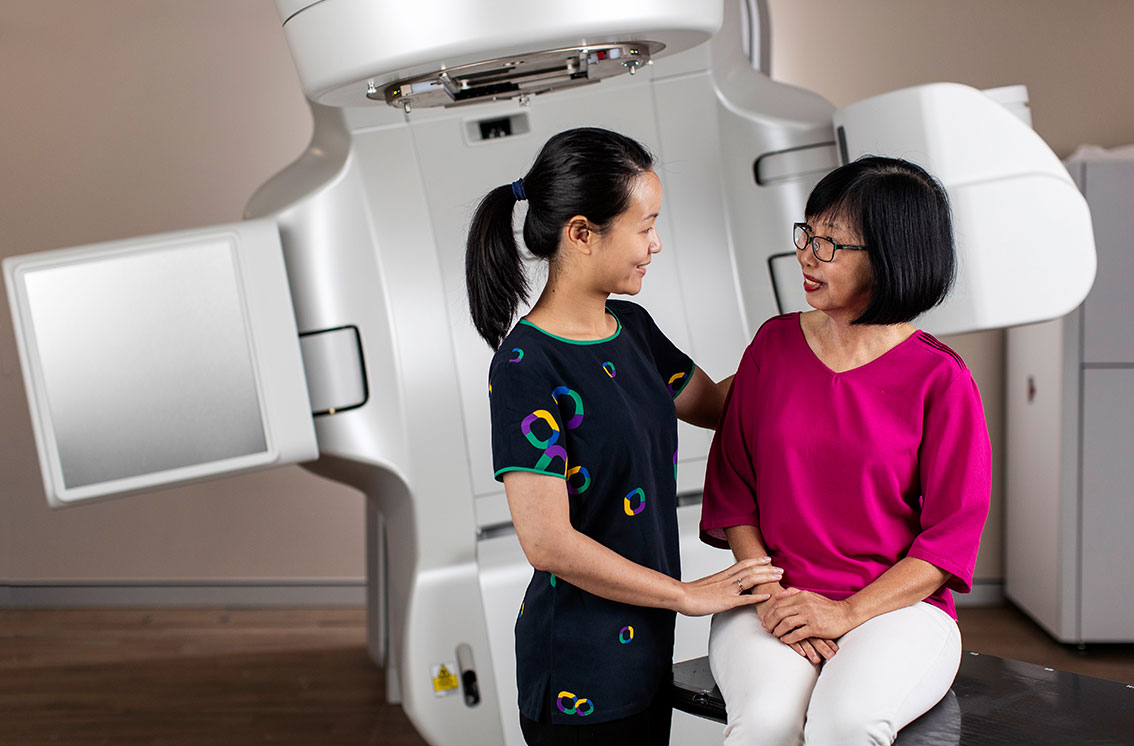Radiation therapy uses radiation to safely treat and manage cancer by destroying cancer cells, reducing the growth and spread of cancer or relieving cancer symptoms. Icon develops personalised treatment plans for your specific needs and treatment may require a number of appointments. After discussing your diagnosis, your doctor will then talk about your radiation treatment with you, including management of your skin, in addition to possible side effects that can be easily managed. We encourage bringing a family member, friend or carer to be part of this discussion. Your care team will then discuss your treatment and you will receive an explanation of the process and what to expect, including time frames.
Treatment is usually provided over an extended period of time, usually from 1-7 weeks, allowing the radiation to target cancer cells and provide healthy cells with enough time to recover. Your course of radiation therapy is unique to you and your cancer, depending on the location and stage of your disease, type of cancer, your age and general health. A treatment session may only last 5 to 20 minutes, however you may need to attend other appointments, such as seeing your radiation oncologist.
